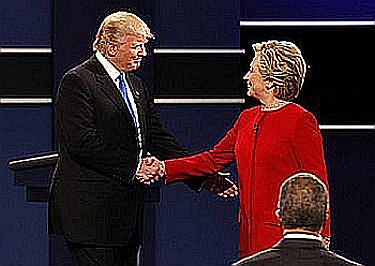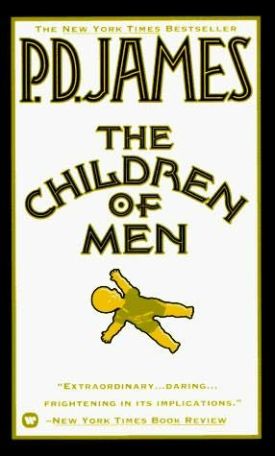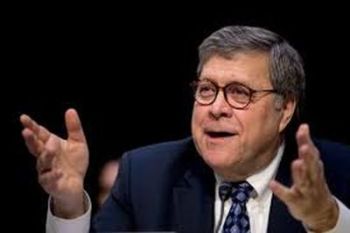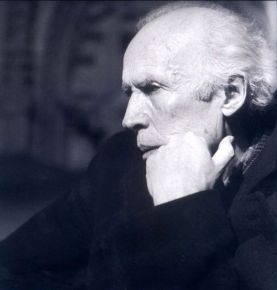New directions in scandalology
From The New CriterionDebate? Or competitive scandal-mongering?
“Tremors become earthquake in Russia probe, shaking Trump,” headlined The Boston Globe on the morning after the indictments, at the instance of Robert Mueller, of Paul Manafort and Rick Gates. The story, by Astead W. Herndon and Annie Linskey, began thus:
The criminal investigation President Trump often dismisses as “fake news” went from disquieting tremors to a full-fledged political earthquake Monday, creating further cracks in the Trump administration’s credibility and its ability to pursue his agenda. Trump’s countless tweets about the Russia probe — “NO COLLUSION!’’ he said again Monday — suddenly seem more hollow in the face of grand jury indictments. His broad denials of campaign-related misconduct will face heightened scrutiny after federal prosecutors revealed a case that is far more intensely developed than anticipated. Former Trump campaign chief Paul Manafort and longtime sidekick Rick Gates pleaded not guilty in federal court to charges of operating a money-laundering scheme separate from the campaign.
Er, how do the words “separate from the campaign” not invalidate everything that has come before them? How are they not a vindication, rather than a disproof, of Mr Trump’s claim of “No Collusion”? These are questions that do not occur to the authors or to their editors at the Globe, which suggests that the authors are writing about the effect of the indictments not on Mr Trump but on themselves and their hopes of his downfall and political destruction.
Peter Baker of The New York Times was slightly more understated than the Globe reporters with their feathered earthquake and hollow tweets, or at least not so blatantly self-contradictory, but he also mentioned the “No Collusion” tweet as if it had been mere bravado in the face of a new and damning contradiction in the form of the indictments. He also helpfully pointed out that “Mr. Manafort was the first president’s former campaign chief indicted since John N. Mitchell during Watergate” — further evidence, presumably, that collusion-gate is, as the media have been saying since January, Watergate Mark II.
Both the Times and the Globe thought that what Mr Baker called the somewhat less than earthquake-proportioned “political body blow” to Mr Trump was particularly crippling on account of the contemporaneous guilty plea of one George Papadopoulos, an unpaid functionary of the Trump campaign, not to “collusion” but to lying to investigators on an irrelevant matter about which, if he had told the truth, he could not have been prosecuted — a process crime, in other words. But, no doubt mindful of the fact that that is how Patrick Fitzgerald nabbed the criminal kingpin Scooter Libby a decade ago, the media were minded to see Mr Papadopoulos’s acknowledged guilt as not just substantive but potentially the long-sought “smoking gun” that would prove to be the undoing of the President.
“A member of Trump’s campaign has pled guilty and provided evidence that the campaign did collude or attempt to collude with Russia,” wrote Jeet Heer in The New Republic, making the most he could of it. “That cuts to the heart of the Mueller investigation — and it means that the president should be in very deep trouble.” Should be but isn’t? That last-second swerve into the subjunctive shows how fervently Mr Heer and his fellow anti-Trumpers must be hoping, as no doubt Mr Mueller is, that Mr Papadopoulos — representing, in Peter Baker’s words, “the second known attempt by Mr. Trump’s team to tap Moscow for damaging information on Mrs. Clinton, coming months before his son Donald Trump Jr. met with a Russian lawyer for the same purpose” — will prove to be the investigation’s John Dean and the chief stool pigeon against Mr Trump.
Yet none of these gleeful commentators on the supposititious plight of Donald Trump thought to mention the contemporaneous revelation that Mrs Clinton’s campaign, through a British intermediary, had not only met with Russians in order to find damaging information on Mr Trump but had actually found some. Or at least thought it did. Later published as the now famous “Russian dossier,” this information was widely regarded, even by some of the anti-Trumpers, as Russian disinformation — which may be part of the reason why the good people of Fusion GPS had for so long sought to keep hidden from the public the identity of those who had paid for it. If the Trump campaign’s Russian connections were to be regarded as scandalous, why were not the Clinton campaign’s?
For those of us seeking to raise our eyes above the level of the media bloodhounds’ noses — pressed, as always, close to the “narrative” trail — there was a weird, almost surreal quality about following the pack in full cry after Mr Trump’s alleged Russia connection as it swept right past Mrs Clinton’s much more obvious and damning Russian connection with scarcely a whimper or the wag of a tail. Unlike some of my more conspiracy-minded colleagues, I don’t think the media behave so out of love for Mrs Clinton. On the contrary, I believe that the only thing that would please the media and their Democratic allies more than Mrs Clinton’s disappearance into the Bermuda Triangle right about now would be Bill’s going with her — especially after the revelations by Donna Brazile of Clintonian skulduggery on the way to the nomination last year. But the metamorphosis of news into narrative has meant a related and necessary adjustment in our notions of what constitutes logical relevance, at least if we are trying to keep up with the media.
For instance. If Mrs Clinton’s Russian collusion — which also included a decidedly shady deal to sell American uranium to Russia when she was Secretary of State — was of no relevance to Mr Trump, the sexual piggishness of her great friend and benefactor, Harvey Weinstein, which dominated the news for much of the month of October, was widely regarded as being of transcendent, even mystical relevance — not to her, of course, but to Donald Trump who, several hundred scandals back, was alleged to have behaved in a Weinstein-like manner. We saw last month (see “Spate of Hate” in The New Criterion of October, 2017) how Ross Douthat managed to link what he saw as the evil-doings of the late Hugh Hefner — of whom the scandal was that he had ceased to be scandalous — to Donald Trump. After that issue had gone to press and the Weinstein scandal broke, Bret Stephens, another of the New York Times’s stable of NeverTrump conservative columnists, sought to establish a similar link.
But the important truth about Mr. Weinstein (he wrote) isn’t his moral hypocrisy: In movies as in politics, hypocrisy isn’t just an accepted fact of life but also an essential part of the job. The important truth is that he was just another libidinous cad in a libertine culture that long ago dispensed with most notions of personal restraint and gentlemanly behavior. “I came of age in the ’60s and ’70s, when all the rules about behavior and workplaces were different,” Weinstein wrote in his mea culpa to The Times last week. “That was the culture then.” That line was roundly mocked, but it contains its truth. Like those other libidinous cads — Bill Clinton and Donald Trump — Weinstein benefited from a culture that often celebrated, constantly depicted, sometimes enabled, seldom confronted, and all- too frequently forgave the behavior they so often indulged in.
The ripple effect of the Weinstein revelations, which took down several other Hollywood producers, directors and actors — and even a prominent British politician who had once put his hand on a female reporter’s knee — not only made the Trump connection almost obligatory for media commenters but also allowed them to disqualify the GOP from any attempt to make political hay out of the downfall of such a powerful and influential Democrat. “Save the Phony Weinstein Outrage, Republicans,” jeered Michelle Goldberg of the Times, just as if the principal in the Weinstein scandal were not Mr Weinstein but Mr Trump. “The movie business is corrupt, depraved and iniquitous — and still morally superior to the Republican Party under Trump,” she wrote. “Betraying the principle of gender equality is bad. Rejecting it is worse.” Margaret Renkl, also in the Times, lamented that “the Raw Power of #MeToo” claims of sexual assault against a whole world of powerful men could not last long:
This kind of activism inevitably moves out of the news cycle when the possibility of thermonuclear war becomes a more pressing concern, when global warming becomes a more pressing concern, when desperate refugees in mortal danger become a more pressing concern, when women’s ability to make decisions about their own bodies becomes a more pressing concern, when millions of uninsured Americans become a more pressing concern. The list of urgent dangers we now face goes on and on and on. But it’s worth noting that most of them can be directly attributed to a man who boasted of being able to violate women at will, and face no consequences at all.
By the way, this must be the hundredth time I’ve seen this same mistake repeated by the media’s legion of Trump-haters. His boast on the Billy Bush, “Access Hollywood” tape, unlovely as it was, was not that he had “violated” women or done anything at all against their will but precisely that they had been the willing recipients of his attentions on account of his fame. That may be a preposterous claim on the face of it, but it is not a confession of guilt or a claim of having escaped the consequences of wrongdoing. But then it’s not as if it were any part of Ms Renkl’s purpose to be fair to Mr Trump. Rather the reverse, in fact. Her claim is that her bill of indictment against the President on a whole range of partisan “pressing concerns” is somehow made even more damning by his alleged affinity, endlessly asserted in the Times and other papers and in spite of the two men’s political enmity, with Harvey Weinstein.
What we are seeing here, I think, is a new development in scandalology — of which, I think I can say without boasting, I have long been something of a scholar. From the academic left, that is, the media have borrowed the idea of what is called “intersectionality.” This is the principle, developed (according to Wikipedia) by the feminist and critical race theorist Kimberlé Williams Crenshaw, that all oppression narratives, no matter how seemingly separate or even contradictory, eventually “intersect” — which in practice has come to mean that they are all essentially the same narrative. Thus a woman ill-used by a man may now blame not just the man, not just men in general, not even “sexism” or “patriarchy” alone. Now she can blame “whiteness” or “capitalism” or pretty much any one of the ever-expanding gallery of putative oppressors adumbrated for us by the academic grievance industry. The whole rotten system of our current social reality, in other words, is conspiring to keep her down when any part of it impinges on her life.
Or, as Mahroh Jahangiri of the Feministing website puts it: “gender-based violence does not exist without other systems of violence, especially those built to uphold white supremacy (such as racism, colonialism, zionism [sic], militarism).” As applied by the media in characteristically haphazard fashion to the pursuit of scandal involving the politically disfavored, this principle of intersectionality means that all scandals are the same scandal and that all scandal narratives may be used to reinforce all other scandal narratives. Anything that doesn’t reinforce your scandal narrative, therefore, such as Mrs Clinton’s Russian collusion, is by definition not a scandal, while any confirmation, or seeming confirmation, of it, no matter how trivial or tangential, even if it involves Mr Trump’s political antithesis, Harvey Weinstein, is one and can be turned to account as a confirmation of a whole Watergate-scale web of corruption and criminality.
This also explains how no one in the media bubble ever seemed to see any problem with invoking Watergate before any investigation had even been set up, let alone arrived at any conclusions. Here was a scandal and there was a scandal; therefore they must be in all important respects the same scandal happening 45 years apart. That has certainly made their work easier for today’s journalists than it was for old-fashioned shoe-leather reporters like Woodward and Bernstein all those years ago, but it remains to be seen if their hopes that the new standard of relevance will be sufficient to bring down Donald Trump, either by resignation or impeachment, will be similarly gratified.
I wish I could say that I thought this eventuality an unlikely one, but there are signs that our legal system has adopted the media’s ideas about political scandal. It is of course no news that the establishment media have mostly abandoned the pretense of belief in democracy, seeking instead to institute government by scandal — or, as I suppose I ought to say, by negative scandal, since the government must consist only of those the media do not find scandalous. Governments are instituted among men, in their view, not to preserve liberties but to advance a progressive agenda, which they can only do if the media have the power, through their jealously-guarded prerogative to define what scandal is, to calumniate them out of existence, either before or after they are elected, if they deviate from that agenda.
What is most disturbing about the latest crop of revelations about the Clinton campaign’s machinations is that the law-enforcement arm of the federal government appears to have signed on to this new understanding of our constitutional arrangements. According to a report in The Hill by John Solomon and Alison Spann the F.B.I. under Mr Mueller’s directorship was complicit in Mrs Clinton’s Uranium One deal with the Russians in 2010 and the consequent enrichment of the Clinton Foundation and Bill Clinton personally by suppressing information it had held of a Russian bribery scheme involving the Clintons since the year previous. Under his successor, James Comey, the Bureau may also have used the Democrat-financed Russian dossier to engage in surveillance of the Trump campaign — not to mention his having let Mrs Clinton off the legal hook for her blatant misuse of classified information and destruction of evidence. Mr Comey as deputy attorney general under George W. Bush was also responsible for the pointless Patrick Fitzgerald investigation of Mr Bush’s administration all those years ago and the victimization by process crime of Scooter Libby.
As Peter Berkowitz wrote in The Wall Street Journal,
One crucial difference distinguishes the probe of Mrs. Clinton from the two Comey-instigated special-counsel investigations of Republican administrations. Mr. Fitzgerald’s multiyear investigation of the Bush administration and Mr. Mueller’s ever-widening scrutiny of the Trump campaign exhibit a tenacious and nearly unconstrained search for persons and crimes to prosecute. In contrast, Mr. Comey’s investigation of Mrs. Clinton reflects a determination not to prosecute systematic and obvious unlawful conduct.
I suppose the charitable interpretation is that Messrs Comey and Mueller are just a bit ahead of the rest of us in recognizing that it is not elected officials of either party but the media, with the power to decide what is scandal and what is not, who are now in charge of us all.
Discover more from James Bowman
Subscribe to get the latest posts to your email.







